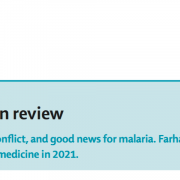What if there was another pandemic?

PDF of the article published in La Razón:
La Razón, ¿Que pasaría si hubiera otra pandemia?
On January 31, 2022, coinciding with the second anniversary of the diagnosis of the first case of COVID in Spain, which took place on January 31, 2020 in La Gomera (Canary Islands), the newspaper La Razón published the following article:
What if there was another pandemic?
A great crisis for a new government
The first case of COVID in Spain was confirmed on January 31, 2020, exactly two years ago. The new PSOE-Unidas Podemos coalition government had been constituted on January 7, 2020, therefore very few days before the appearance of the crisis. It was a government of ideological confrontation rather than management, with a precarious and heterogeneous parliamentary majority, which made any parliamentary initiative difficult, and unwilling to reach agreements with the opposition.
Possibly the worst of the political contexts to address a crisis of these characteristics, where technical competence, the ability to promote legislative initiatives and obtain the support of Parliament for certain measures and the achievement of wide-ranging agreements, were key.
Great health and economic impact
With data as of January 28, 2022, obtained from the Coronavirus Resource Center of Johns Hopkins University, Spain is one of the countries with the highest mortality from COVID. With 197.05 deaths per 100,000 inhabitants, excluding a few countries, such as the United States, Belgium, Italy and the United Kingdom, most of the developed countries and almost all European countries had lower mortality per 100,000 inhabitants than Spain. We refer to France, Portugal, Austria, Sweden, Luxembourg, Switzerland, Germany, Ireland, Canada, Holland, Denmark, Finland and Norway, to name just a few.
But it is that in economic impact Spain also stands out. In a recent report by The Economist published on January 1, 2022 and in which the evolution of different economic indicators during the pandemic in 23 countries is compared, it is concluded that some countries have performed especially well, such as Denmark , Norway and Sweden; United States reasonably well; other European countries such as the United Kingdom, Germany and Italy, clearly worse. But the worst of all was Spain.
Two phases in the management of the pandemic: from “single command” to “co-governance”
In its initial phase, there was too much trust in the well-known strengths of the Spanish system, some weaknesses of the system were not taken into account (such as the precariousness of Public Health), there was a late reaction, we faced serious problems in purchasing material , there was a high number of infected and dead professionals. For a long time we witnessed a shortage of tests and there was no general approach to carrier detection or tracking of those affected and there was a lack of special approaches for risk groups.
In the first wave, the Ministry of Health is awarded the “single command” of the crisis, based on the state of alarm. But this Ministry had been almost irrelevant for decades and had a weak management capacity, as evidenced by the purchases that it initially intended to address in its entirety. Nor did it articulate a dialogue and participation with the different protagonists of the sector. Serious problems of the information system were evident. The communication policy was not always successful.
Having overcome the state of alarm, in the rest of the waves, the government learned the lesson of the high costs of managing a crisis of these dimensions, and went from being the protagonist to being almost inhibited, improvising a so-called “co-governance”, which in the practice consisted of holding regular meetings with the autonomous communities, leaving almost all decisions in their hands, including some that, because they affected fundamental rights, were later annulled by the judges. Then “co-governance” without governance was invented, since the only interlocutors were governments, but not the rest of the groups, agents and protagonists of the sector, as governance is understood.
When the time came, everything was trusted to the success of the vaccination, which was shown to be an error in the face of the new “ómicron” variant.
Even with very high figures for COVID, both the Government and the SEMFYC are committed to “influenza-like approach”, that is, downplaying COVID by considering it similar to the flu, something rejected as premature by both the WHO and the European Union. It is hoped that COVID will become “endemic”, as if, for example, the malaria endemic had not caused 600,000 deaths in 2020.
What if there was another pandemic?
It seems clear that the pandemic is not an exceptional or unrepeatable event, what is usually called a black swan, but rather we live in a world where, in the last two decades, there have been epidemic outbreaks every three years (SARS, H1N1 avian influenza, MERS, Ebola, Zika, etc).
What would happen if, as Bill Gates warned last week or some virologists like Christian Drosten, a new pandemic arrives?
It would happen that the problems that we encountered two years ago have not been resolved: the Public Health Center that is announced does not respond to the approach of an independent Agency proposed by SESPAS and many other groups; governance of the health system has not been addressed; nor the participation of professionals; nor the relations between science and political decision makers; nor the information system; and, surely neither essential supplies. Everything is entrusted to the arrival of “Next Generation” funds, but without addressing the necessary reforms.



